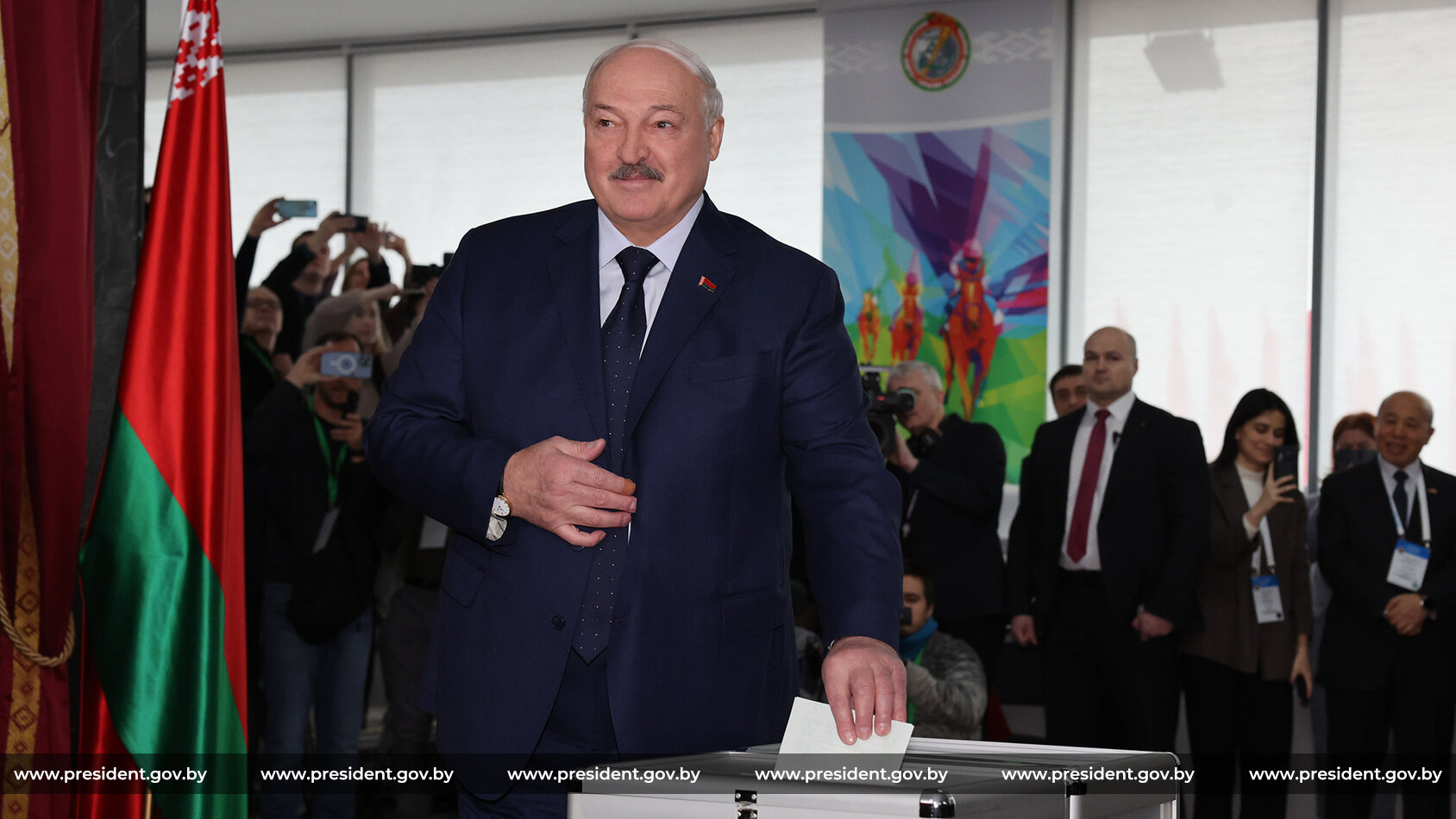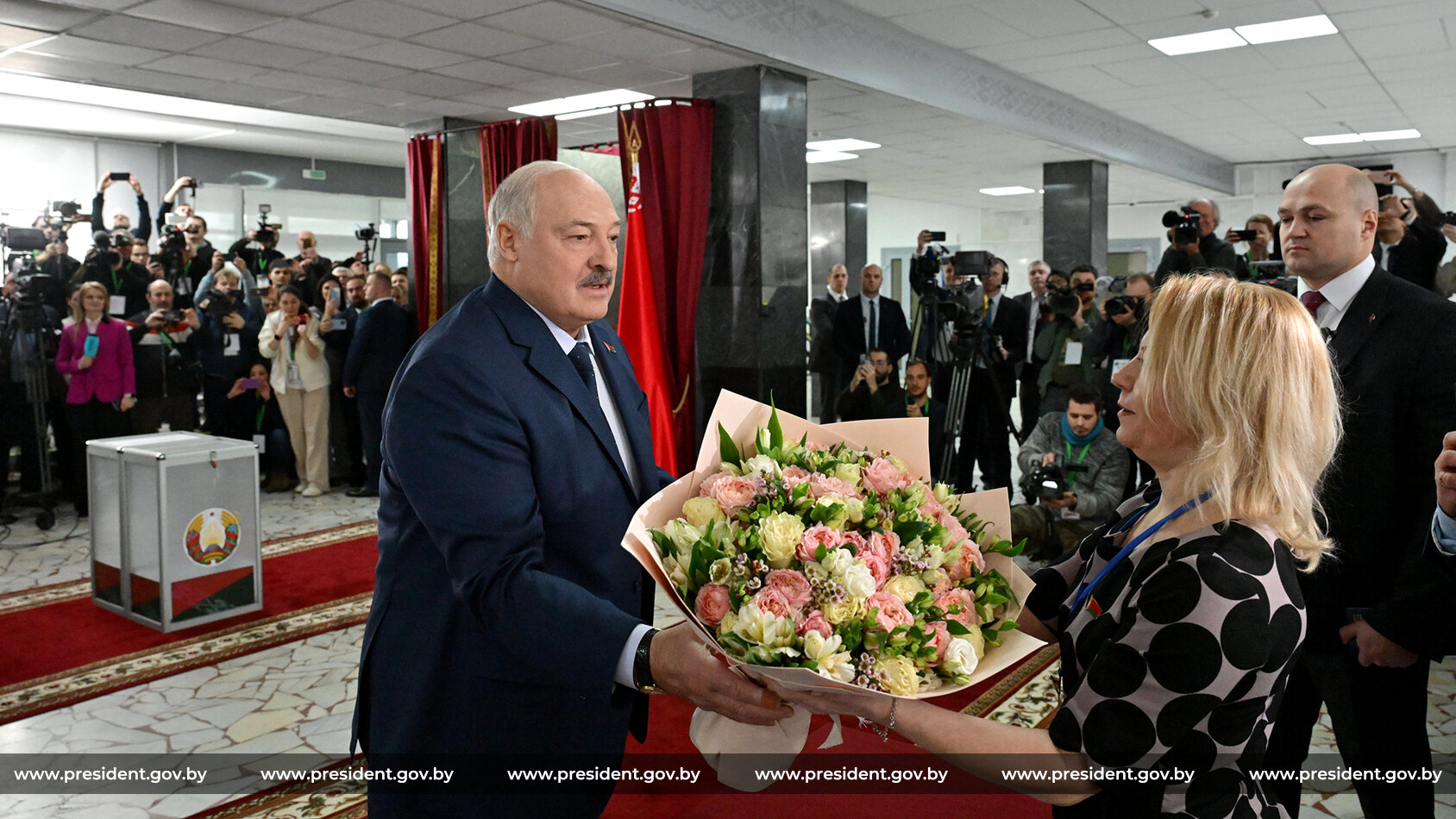Aleksander Lukashenko has once again emerged victorious in Belarus's presidential elections, securing 87.6% of the vote, according to an exit poll conducted by the Belarusian Committee of Youth Organizations. His closest rival, Sergei Syrankov, garnered just 2.7% of the votes, with voter turnout reported at 87.5%.

This marks Lukashenko's seventh term in office, extending his rule to over three decades since he first assumed the presidency in 1994. The current election results suggest that his tenure will now continue until at least 2030.
President of Uzbekistan, Shavkat Mirziyoyev congratulated President Lukashenko on his victory in Belarus' presidential election. Mirziyoyev highlighted the strong voter participation and the Belarusian people's support for Lukashenko's reforms.
The leaders discussed the development of Uzbek-Belarusian relations, building on agreements made during Lukashenko's visit to Uzbekistan in February 2024. They emphasized expanding trade, which surpassed $700mn, accelerating industrial cooperation, and strengthening cultural and humanitarian ties. They also reviewed plans for future bilateral events.
On the other hand, European leaders were quick to denounce the election as illegitimate. EU foreign policy chief Kaja Kallas and European Commissioner Marta Kos condemned the process as a sham, calling for the release of political prisoners in Belarus. The EU also announced plans for new sanctions targeting Lukashenko’s regime.
Exiled opposition leader Sviatlana Tsikhanouskaya dismissed the election as a “farce” and organized a rally in Warsaw, Poland, to protest the results. She reiterated her calls for democratic reforms and accountability in Belarus.
Reports from independent publication Zerkalo revealed that Belarusian state employees were compelled to remain at work during the election period, while chief physicians were instructed to keep patients hospitalized to ensure their participation in voting. Even critically ill patients were reportedly included on voter rolls.
Observers, primarily from Commonwealth of Independent States (CIS) countries, monitored the election. Western observers participated only in a personal capacity, with just 17 individuals present, according to the Central Election Commission.

At a press conference, Lukashenko dismissed concerns about the democratic legitimacy of the election, asserting that opposition figures left the country by choice, not coercion. Responding to a BBC journalist’s question, he stated,
“It’s their right to choose,” regarding the absence of opposition candidates.
State media defended Lukashenko’s extended rule, portraying him as a leader committed to stability rather than power retention.
Calmest Election in History?
Belarusian Interior Minister Ivan Kubrakov declared the 2024 elections “the calmest in the country’s history,” with no reported public order violations. He thanked law enforcement for maintaining peace and accused foreign actors of attempting to distort the situation.
Once hailed as a beacon of post-Soviet democratic reform in the 1990s, Belarus has witnessed a steady erosion of democratic principles under Lukashenko’s leadership.
- Opposition candidates face disqualification or pressure.
- International observers consistently report election irregularities.
- Protests are often met with harsh repression.
In 2004, Lukashenko abolished presidential term limits through a controversial referendum, allowing him to run indefinitely. Subsequent elections, particularly in 2006, 2010, and 2020, were marred by allegations of vote-rigging and mass protests.
The 2020 election was particularly contentious, with widespread protests fueled by economic discontent and dissatisfaction with the government’s handling of the COVID-19 pandemic. Prominent opposition figures, including Viktor Babariko and Sergei Tikhanovsky, were arrested, while others fled the country.
In 2024, the election landscape remained largely uncompetitive. Notably, Communist Party candidate Sergei Syrankov openly supported Lukashenko, earning praise from the president. “Syrankov is a true patriot,” Lukashenko remarked, further underlining the lack of opposition.
Follow Daryo's official Instagram and Twitter pages to keep current on world news.
Comments (0)